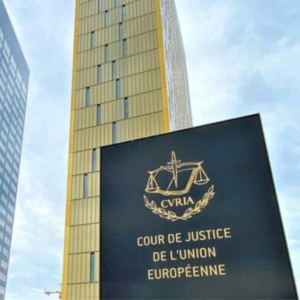The European Court of Justice (ECJ) has opened a new chapter in the seemingly never-ending Dieselgate saga. On 21 March 2023, the ECJ ruled that EU law on approval of motor vehicles protects – in addition to public interests – the specific interests of the individual purchaser of a motor vehicle vis-à-vis its manufacturer.[1] The judgment facilitates compensation claims by purchasers of vehicles with a prohibited defeat device. As a result, a new wave of litigation is likely to hit car manufacturers.
The matter was referred to the ECJ for preliminary ruling by the Landgericht Ravensburg (Regional Court, Germany). The claimant in the main proceedings, an individual who bought a car manufactured by Mercedes-Benz Group (Mercedes), seeks compensation for damage allegedly caused by a so-called “temperature window”. The referring court asked the ECJ to determine whether the Framework Directive 2007/46/EC[2] (Framework Directive) read in conjunction with the Regulation No 715/2007[3] (Regulation) protects the interests of individual purchasers of vehicles, in addition to public interests. The question is crucial as, under German tort law, damages claims for negligence require the infringement of a statute intended to protect another person’s individual interest; an infringement of a rule that protects merely public interests does not suffice.[4]
In its judgment, the ECJ noted that the Framework Directive requires manufacturers to issue a “certificate of conformity” to the individual purchaser of a vehicle. The certificate confirms that “a vehicle belonging to the series of the type approved in accordance with [the Framework Directive] complied with all regulatory acts at the time of its production.” From this requirement, the ECJ concluded that an individual purchaser can reasonably expect their vehicle to comply fully with relevant EU legislation and recognized a “direct link” between manufacturer and purchaser. Consequently, the ECJ interpreted the Framework Directive and the Regulation “as protecting, in addition to public interests, the specific interests of the individual purchaser of a motor vehicle vis-à-vis the manufacturer of that vehicle where that vehicle is equipped with a prohibited defeat device.”
The ECJ was also asked to determine whether the temperature window at hand actually is a prohibited defeat device within the meaning of the Regulation and to clarify the EU law’s stance on whether the benefit a customer has derived from using the vehicle should be offset against the reimbursement of the purchase price. As to the former, the ECJ stated with reference to earlier case law[5] that a temperature window might very well fall within the definition of prohibited defeat devices under the Regulation, if none of the exceptions to that prohibitions were met. The ECJ demanded a strict and rigid interpretation of those exceptions but in light of its jurisdiction ultimately left the necessary factual assessments to the referring court. As to the latter, the ECJ again ruled that this was for the national courts to decide but emphasised the importance of the principle of effectiveness of EU law.
Even though the ECJ left many questions to national courts, the potential implications of this judgement are far-reaching, at least for Germany. Until now, the German Bundesgerichtshof (Federal Court of Justice) had brushed away any notion that EU legislation on type approval might protect the specific interests of individual persons, thereby ruling out any claims for compensation based on negligent conduct. Instead, claimants could only obtain compensation where intentional damage contrary to public policy was found, a notoriously high threshold, which so far has been passed only by Volkswagen’s use of defeat devices in its EA189 motors. The ECJ decision overturns the German Bundesgerichtshof’s position and clears the path for damages claims based on negligence in all cases concerning a prohibited defeat device.[6]
The German Bundesgerichtshof, having stayed approx. 1,500 Mercedes-related proceedings in anticipation of the ECJ’s decision, will decide on 8 May 2023 on how to proceed in light of the new developments. To be continued.
Anton Burri[7] and Johannes Nickl[8]
[1] Judgment of 21 March 2023, QB v Mercedes-Benz Group AG, C-100/21, ECLI:EU:C:2023:229.
[2] Directive 2007/46/EC of the European Parliament and of the Council of 5 September 2007 establishing a framework for the approval of motor vehicles and their trailers, and of systems, components and separate technical units intended for such vehicles, as amended by Commission Regulation (EC) No 385/2009 of 7 May 2009.
[3] Regulation (EC) No 715/2007 of the European Parliament and of the Council of 20 June 2007 on type approval of motor vehicles with respect to emissions from light passenger and commercial vehicles (Euro 5 and Euro 6) and on access to vehicle repair and maintenance information; Art. 3(10) and Art. 5(2) Regulation.
[4] See Section 823(2) German Civil Code.
[5] Judgment of 14 July 2022, GSMB Invest, C‑128/20, EU:C:2022:570.
[6] Based on Section 826 BGB.
[7] Faculty of Law, University of Lucerne, Switzerland.
[8] Faculty of Law, Heidelberg University, Germany.
Foto Credits: Luxofluxo


